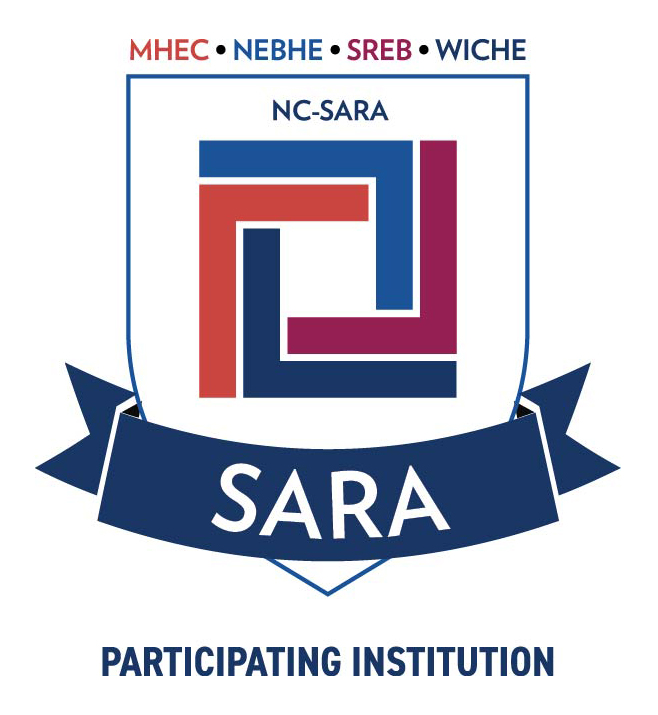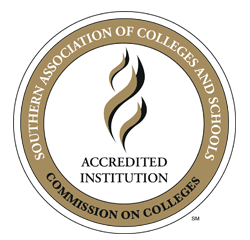State Authorization
States regulate which institutions can offer education to its citizens. State Authorization is a form of consumer protection that guarantees educational institutions will follow that state’s regulations.

A State Authorization Reciprocity Agreement (SARA) is an agreement among member states, districts, and territories which establishes comparable national standards and streamline regulations, fees, and approvals for institutions offering interstate distance education programs. Courses and programs incorporating a “supervised field experience,” such as a practicum, internship, or student teaching, are covered by the provisions of SARA.
Catawba College is approved by State Authorization Reciprocity Agreement North Carolina (SARA-NC) to participate in the National Council for State Authorization Reciprocity Agreements (NC-SARA). This membership allows Catawba College to offer distance education in NC-SARA’s 49 member states, the District of Columbia, Puerto Rico, and the U.S. Virgin Islands.
Note: California is not part of NC-SARA. As an out-of-state private institution, Catawba College is not under the purview of the California Bureau of Private Postsecondary Education. Catawba College is not in compliance with California regulations to offer online/distance learning programs to California residents. If you have questions, please contact the Associate Dean of Online Learning.
STATE AUTHORIZATION BY STATE:
PROCESS FOR RESOLVING COMPLAINTS
Catawba College strives to providing quality and supportive learning environments and is committed to responding to student complaints promptly. For grievances involving any aspect of the online educational experience, we request students follow this process.
Step One: Resolution Within Catawba College
First try to reach a resolution with the instructor or other party involved in the issue, before taking the issue to the department chair, immediate supervisor, and, finally, the Provost’s Office. Both the Catawba College Undergraduate Catalog and the Catawba College Graduate Catalog describe policies and procedures to resolve grievances.
- Academic Grievances
- Complaints Related to Disability-Related Services and Accommodations
- Title IX Complaints
For questions or more information, please contact:
Associate Provost Earl B. Givens, Jr.
2300 W Innes St
Salisbury, NC 28144
Hedrick Building, 4309
704.637.4212
ebgivens15@catawba.edu
Step Two: North Carolina Department of Justice
If Catawba College’s resolution procedures does not lead to a satisfactory resolution of the grievance, students may utilize the North Carolina Independent Colleges & Universities Complaint Process and contact the North Carolina Department of Justice. Grievances can be submitted electronically or by mail:
Consumer Protection Division
Attorney General’s Office
Mail Service Center 9001
Raleigh, NC 27699-9001
Telephone for NC Residents: 877.566.7226
Telephone for Outside of NC: 919.716.6000
En Español: 919.716.0058
Step Three: SARA North Carolina
If the first two steps outlined above do not lead to resolution, students may follow the SARA-NC Complaint Process and use the SARA-NC Complaint Form (PDF). SARA-NC does not resolve complaints about student grades and student conduct violation; these complaints fall under the jurisdiction of institutional policy. The contact information for SARA-NC is:
North Carolina State Education Assistance Authority
c/o SARA North Carolina
PO Box 41349
Raleigh, NC 27629
Telephone: 855.SARA.1.NC (727-2162)
Telephone: 919.549.8614, ext. 4667
Email: complaint@saranc.org
www.saranc.org
If a student wishes to contact the state portal entities for his or her home state, contact information for state authorization liaisons in each SARA state can be found on the NC-SARA website, and a step-by-step process for filing a SARA student complaint is outlined on the NC SARA site. As required by Federal regulations, Catawba College provides current and prospective students Student Complaint Information by State and Agency (PDF).
Step Four: Southern Association of Colleges and Schools Commission on Colleges (SACSCOC) Student Complaint Process
Southern Association of Colleges and Schools
1866 Southern Lane
Decatur, Georgia 30033-4097
Telephone: 404.679.4500
http://sacscoc.org
PROFESSIONAL LICENSURE
View information about professional licensure at Catawba College:
Professional Licensure Disclosures
RELATED INFORMATION
